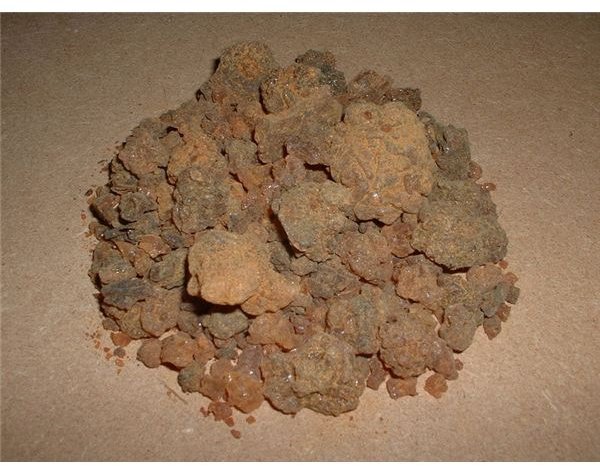Important Health Benefits of Myrrh Essential Oil
Myrrh bestows several benefits and is commonly used in herbal treatment, perfumery, religious rituals and chakra meditation. The scent of this essential oil strengthens your focus, senses and clarity of mind. This is the main reason why it has always been an integral part of meditative practices and yoga, as it calms your mind and makes you focus on your goals.
The name “myrrh” is derived from the Greek name “myrrha”. The tree’s botanical name is Commiphora molmol and its common name is hirabol myrrha or bola. The tree, which is commonly found in Yemen, Arabian nations and Somalia, can grow up to 16 feet. The oil is extracted from this tree and is used in several herbal remedies and perfumery. Let us learn more about this essential oil, including its extraction procedure, history, health benefits, uses and side-effects:
Used as a Main Ingredient in Egypt’s Embalming Procedure and Cosmetics
Around 3,700 years ago, myrrh was used as an integral part of Egyptian cosmetics and perfumery. Earlier varieties of black eyeliners in ancient Egypt contained myrrh to add fragrance. It was also one of the main ingredients used for embalming corpses of Egyptian kings. The tomb of Egyptian Queen Hatshepsut mentions the important uses of this essential oil. In Greece, the myrrh oil was used as a topical ointment to heal external wounds. It is mentioned in the New Testament bible and was presented as one of the gifts during the birth of Christ.
Extraction Process and Properties
Myrrh is extracted from Commiphora molmol’s light bark, which is chopped out to collect gum resin. The pale yellow-colored resin changes its color to brown after hardening. The oil is then extracted and distilled from the crude resin through steam distillation method.
The color of the oil is pale yellow or amber and has a slight musty fragrance. It is warm, sharp and bitter in taste and is extensively used in aromatherapy .
Therapeutic Properties and Uses
Myrrh oil is applied to body surfaces and boasts various antiseptic, astringent, anti-inflammatory, anti-fungal, and antimicrobial properties. Here are some more benefits:
- In aromatherapy, Myrrh essential oil detoxifies the body, has a calming effect on the mind and the central nervous system and strengthens the nerves.
- The oil can also be used to clear mucus in the lungs and treat colds, catarrh and sore throats. Please consult a herbal expert to know more about dosages.
- Patients with mouth and gum disorders will find the oil extremely useful. It has the ability to treat mouth ulcers, gingivitis and spongy gums.
- It is also excellent for treating various skin conditions and can be applied externally on weeping wounds, chapped skin, athlete’s foot and eczema.
You can use myrrh essential oil in vapor therapy if you are suffering from colds and coughs. It can also be diluted in the bath to treat infections and cold. If you are suffering dental infections, dilute very few drops of oil with water and mouthwash. It can also be used in cold compress methods for skin care and wound.
Precautions
Pregnant women must refrain from consuming myrrh as it can stimulate the uterus and induce an abortion. Individuals having sensitive skin should not use theoil topically. If you are diabetic, please do not consume. Always consult an expert in herbal treatment or your Ayurveda doctor to know more about the percentage of concentrated myrrh oil that has to be diluted in water.
Please read this <em>disclaimer</em> regarding the information contained within this article.
References
- Oils (Myrrh) http://www.spiritualplatform.org/sp/aromatheropy/oils.html
- Lis-Balchin, Maria Aromatherapy science: A Guide for Healthcare professionals (Google Books)
- “Myrrh Oil Health Benefits” http://www.organicfacts.net/health-benefits/essential-oils/health-benefits-of-myrrh-essential-oil.html
- Pereira, Jonathan: The Elements of Materia Medica and therapeutics (Google Books)
- Image Credit - http://en.wikipedia.org/wiki/File:myrrh.JPG
